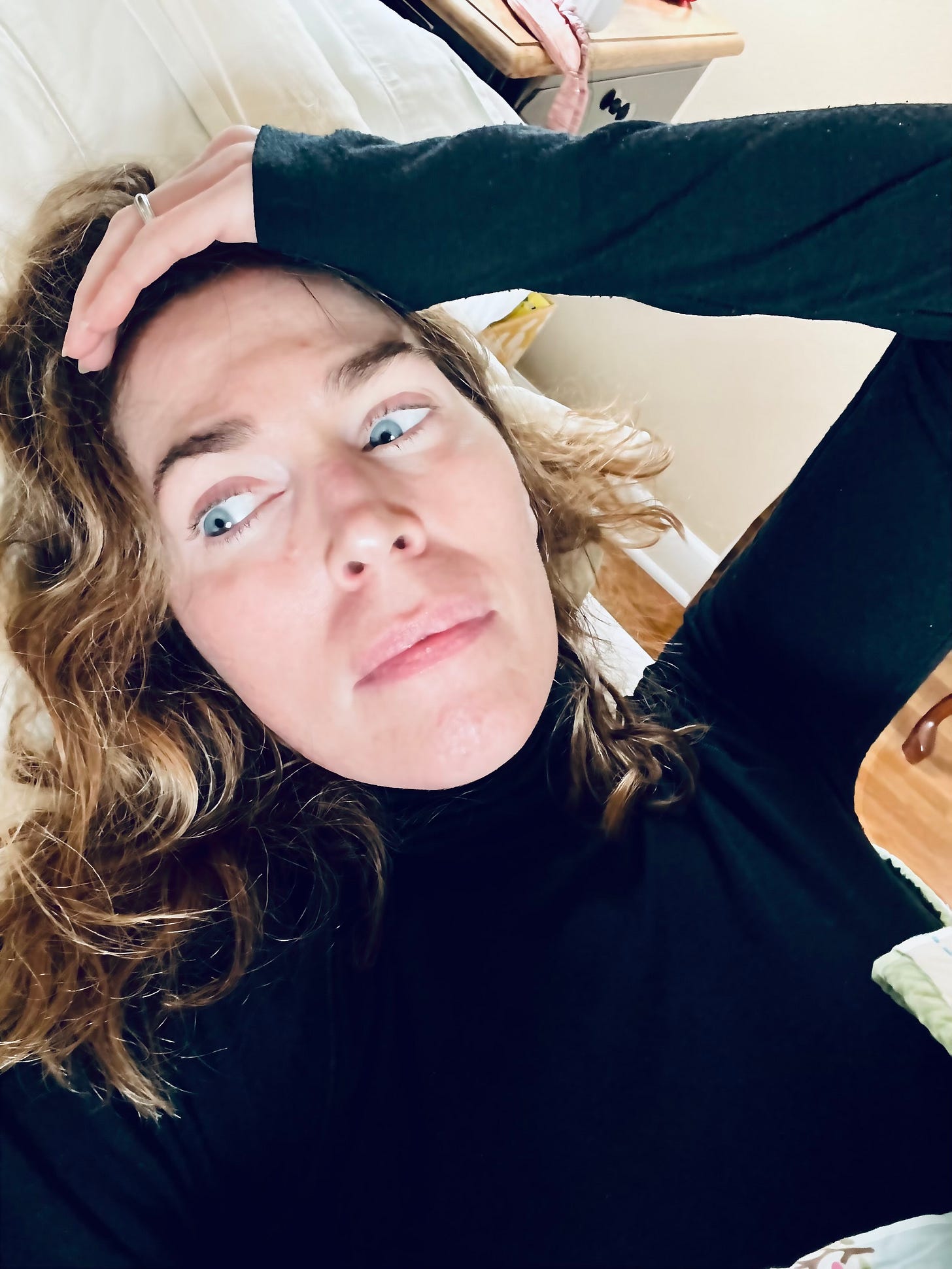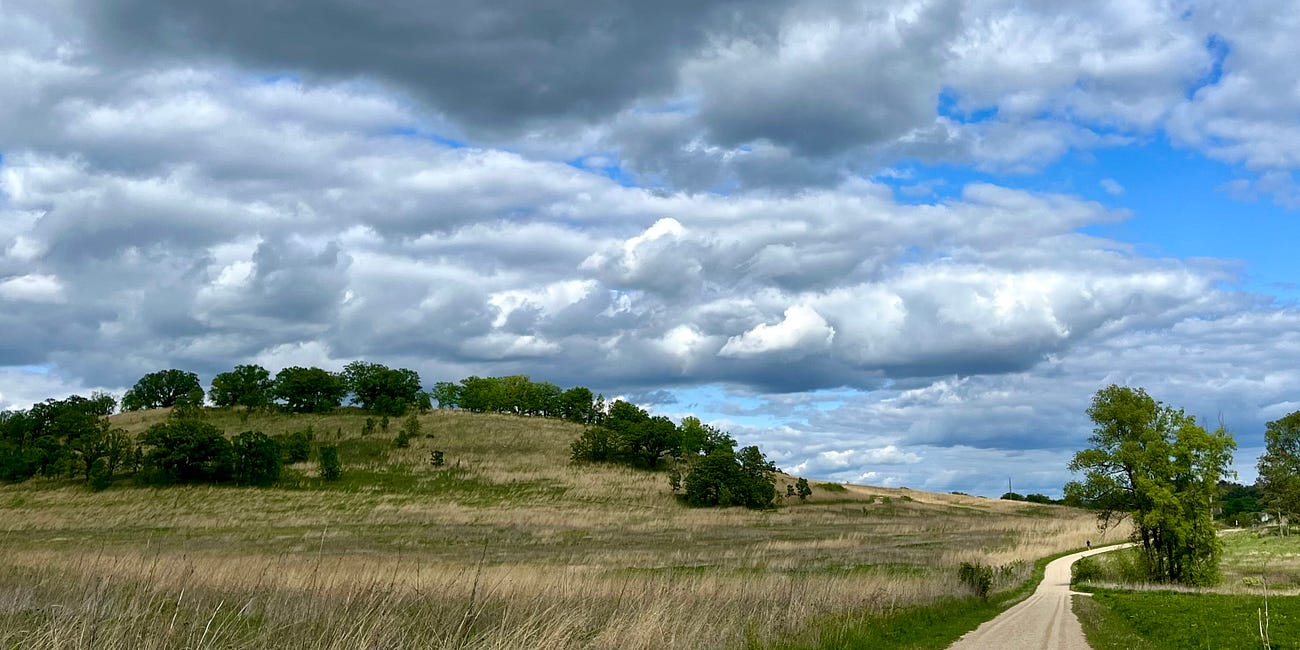From the Early Internet to AI Everywhere
Will AI Free Us—Or Trap Us Further Online? And What About Finding a Job?
It’s fascinating how many young people are drawn to the pre-internet era—or at least the idea of it. Although I remember lots of young 1960s obsessions in the nineties, so I guess it tracks. The sixties seemed so vibrant in contrast to the beige, bland, and corporate-ized aesthetics I saw every day. But not all boring is bad.
A purely virtual world filled with mindless, sterile clickbait seems so unsatisfying—even worse than boring. Many young people seem to think so too. Nearly half of 16- to 21-year-olds said they would prefer to grow up in an internet-free world, according to a recent survey conducted by the British Standards Institution. The study also found that young people spend more time online than interacting with others IRL or participating in physical activities (which, of course, we already knew).
There are countless combinations and types of experiences that any single person might have and benefit from, but I’m afraid young people might not find them if they’re stuck online.
I went from years of carrying textbooks on my right side to years of carrying little ones on my left. Why always those sides? Perhaps because they each engaged different sides of my brain: textbooks for factual left-sided learning and caretaking for right-sided creative intuition. I don’t know if that’s really true, but I do know I feel more brain-balanced from having different types of life experiences.
If you were born before 1990, you probably remember days when being online felt more like a choice—or even privilege. With so many people already spending more time online than they’d like, what’s gonna happen as we shift from dot-com to dot-ai?
Dial-up-days to always online
I’ve always gravitated toward living beings over machines, real-life experiences over digital ones, and my own inner world over the vastness of the internet. So, I was never quick to jump on any tech bandwagon. And I never needed to for work.
I got my first cell phone in 2000, just weeks after my daughter was born. It felt like the “responsible” parent thing to do. But I held off on getting a smartphone until 2015. Even now, I’d struggle to explain why I truly need one or how it’s improved my life in any meaningful way. Most tech “advances” have felt more like distractions or intrusions than actual improvements.
Constantly being internet-connected did nothing to make life easier when I was in the throes of caring for young kids. Any bit of efficiency gained added at least five points of distraction, and most distractions were more anxiety-provoking than fun. I could see the difference clearly because I first became a parent back in the dial-up days; I had a “before” to compare the “after” to.
The hardest part of the always-online era was the endless parade of ways to compare yourself, your kids, and your entire life, along with an endless stream of crap to buy and time-wasting “hacks” to make perfect seem possible.
Sure, “compare and despair” existed in real life too, but at least then you’d catch glimpses that other people’s lives weren’t flawless either. And other people couldn’t constantly push polished photos in your face 24/7—or inundate you with rants or humblebrags or totally made-up shit.
Instead, you had space to just exist—maybe you were more bored but maybe less self-critical. You spent less time worrying about how you measured up, and more time simply being you with no one to follow and no one following you back, besides the ones in your shared space, for better or worse. And if for worse, you might be able to move on and find a new space without them, finding solace in being alone.

Chatbots and ChatGPT
I love talking to people. I talk to myself. I talk to God, my guinea pigs, and people no longer living. But I don’t like talking to bots. At least not by choice. Well maybe I would if I had a real robot that did really helpful things, like wash and cook and clean. My kid-self totally expected there’d be Rosie robots by the time GenXers grew up. Instead, we got Alexa.
I totally skipped over Alexa’s arrival. I didn’t want a device listening to every sound in my home. Every Echo that came in, I kicked out. Why should Alexa be privy to the most precious and private ongoings in my home? And why does it deserve a human name, anyway, when so few people are ever honored and known on a first-name basis?
Now, with AI, the lines are further blurred between humans and machines. Who really knows what will happen, even in the short run? But I know expected bad things don’t always happen. And I’ve seen that even better than anticipated things can. (My mind goes to the negative first so I don’t need those reminders.)
Will AI free people up to go out and experience more, or will it pull us even more in and apart from each other and the natural and spiritual world?
No one really knows. But it seems worth knowing your reasons for using AI, and then thinking about how to use it, as well as whether it’s helping or hindering.
Reasons to use AI
AI seems too much for many things—more energy, more words, more sources. If I weren’t working as a writer, I don’t think I’d bother with AI at all at this point. It seems like another time suck in an already distracted day. Still, I’m always open and curious, ready to pick up something purposeful and new if it’s both and not just new.
Whether you’re using AI or not (most people do and many don’t even know it), AI has reached a threshold where the reasons to use AI (the “use cases”) are taking off. Though in many cases, the uses aren’t for work.
A 2025 survey of 500 U.S. adults using AI models showed that twice as many turn to AI for personal uses—amusement, planning, and informal learning—as they do for work-related tasks. Likewise, a Pew Research Center survey of 5,273 U.S. adult workers conducted in late 2024 found only 1 in 6 people regularly use AI tools at work.
Most discussions about AI and work focus less on how AI can assist us and more on how AI will replace us. Who isn’t concerned about job security or finding new work? If you’re not, chances are someone close to you is. It’s especially stressful for anyone single and self-supporting, though anyone can suddenly find themselves as the sole provider. I saw this happen to my mom several times.

Looking for work?
The job market is a joke. But if you’re in it for real, the job market isn’t funny. It just plain sucks. And if you’re in it and don’t have a partner with insurance and reliable income (or a boatload of available cash), the job market is shittier than shit. My mom spent one year in that last category at age 60, and she’ll say it was one of the worst years of her life. Looking for work is exhausting. Jumping through the hoops to get unemployment is too, and it rarely comes close to covering ends.
If you’re in a similar position and you think I might be able to help with your job search in any way, connect with me on LinkedIn. I’m happy to answer questions, share thoughts, or keep an eye out for roles or connections.
Networking seems to be the best way to find work, but I know it can be exhausting. It’s especially hard if you’re worn down from rejections and finding few promising leads. It’s hard to reach out when you just want to go back to bed. That’s what I do after a job interview. Go back to bed and stare at the ceiling fan. Babies love fans, and I get why. They’re calming. It’s like a quick brain reset.
This Slate article sums up the feeling job-seekers of all ages have: “The Bargain of Working Hard and Getting a Job Simply Doesn’t Hold Anymore,” by Nitish Pahwa.
I’m in “the job market sucks” category, though also in the unique category of seeking full-time work after years of part-time roles while caring for young kids. I knew it’d be hard and planned on it taking a year. And I knew 2025 would be a hard year in general. But the pace of the unraveling has been astonishing (and the point).
I’m continuing my part-time pharmacy work and (so far) continue to find freelancing work piece by piece. “We’ll see” and “for now” are my favorite phrases for an expanding number of things.
A good thing about being a writer is that writing helps you see and imagine more possibilities. No AI monster can take that away. No monster can.
For many writers, using AI is becoming necessary, but also tricky. How can the change be navigated without losing your voice and integrity? Here’s what’s helping me as I go.









Good luck with the job search. I may be right behind you. Regarding AI, I have no words. It feel so beyond what I signed up for!! Can we go back to the 80s now?!
“If you were born before 1990, you probably remember days when being online felt more like a choice—or even privilege.” - it is funny how much this hit home for me. It really was a choice once.